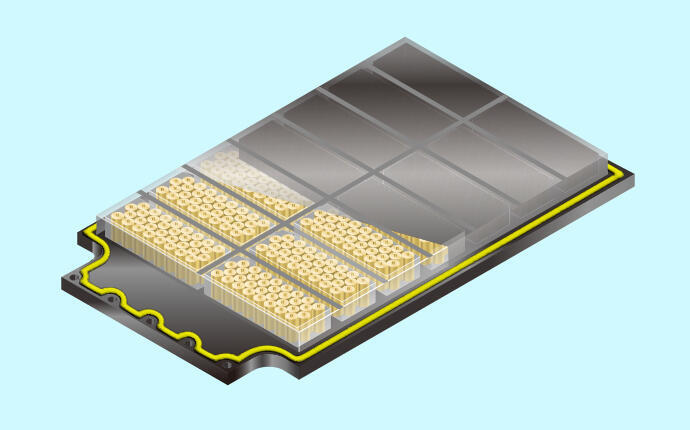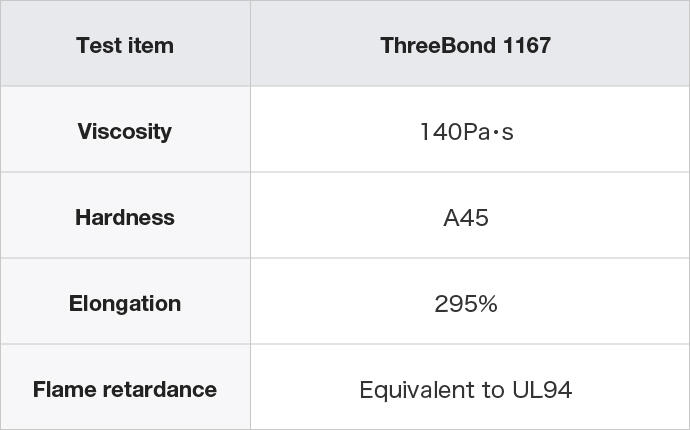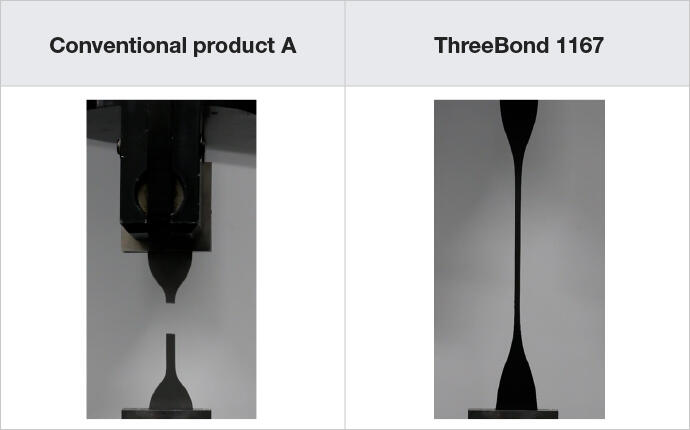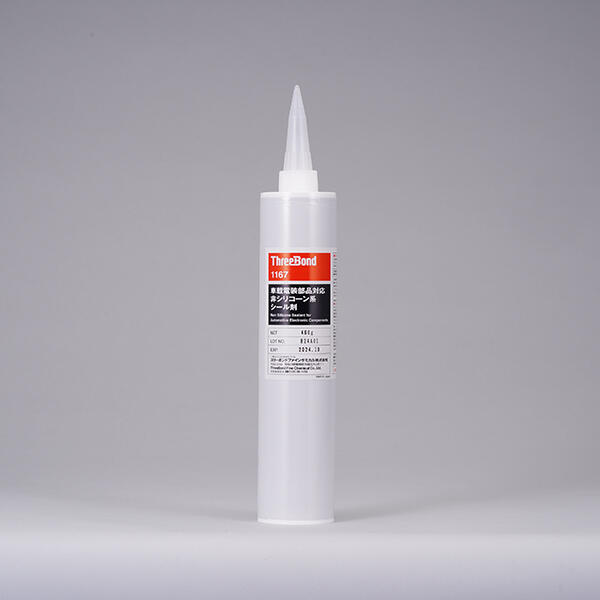Flame-retardant non-silicone sealant compatible with on-board electrical components
Electric vehicles are equipped with many electrical components, and low molecular weight siloxanes in silicone can cause electrical contact failures. In addition, because organotin compounds, which are restricted under the European REACH regulation, are added to conventional products as curing catalysts, there is a need to develop environmentally friendly non-silicone sealants.
Features
- Free of low molecular weight siloxanes and organotin compounds.
- The cured material is flexible and has an elongation of 300%.
- Excellent heat resistance required for electrical components.
- Complies with laws and regulations of major countries around the world.
- Flame retardancy equivalent to UL94 V-0.
Uses
- Case seal of ECU and battery
- 低分子シロキサンフリー要求の部品 Components required low molecular weight siloxanes free
- 欧州REACH規則対応のRTVの代替

Development points
ThreeBond 1167, developed as a sealant for automotive battery cases, is a resin that does not contain low-molecular-weight siloxanes or organotin compounds. In addition, there is a risk of automotive batteries igniting or exploding, and if a large shock or pressure is applied to an electric vehicle, such as in an accident, it may result in secondary damage such as ignition. Due to this, there is an increasing demand for flame-retardant components around on-board battery cases, which has led to the development of a liquid gasket with flame-retardant properties.
Properties and general characteristics


Durability evaluation at 120°C

The rubber properties of urethane resin and ThreeBond 1167 subjected to up to 500 hours of heat resistance test. Urethane resin cannot maintain its elongation after being subjected to heating, but ThreeBond 1167 can maintain its properties with a low rate of change even after being exposed to heating.
The elongation assessments of ThreeBond1167

The elongation assessments of ThreeBond 1167 and conventional product A (UL94 V-0 certified) were compared using dumbbell test pieces. Compared to 50% for conventional product A, the elongation of ThreeBond 1167 was about 300%, differentiating it from the conventional product.


